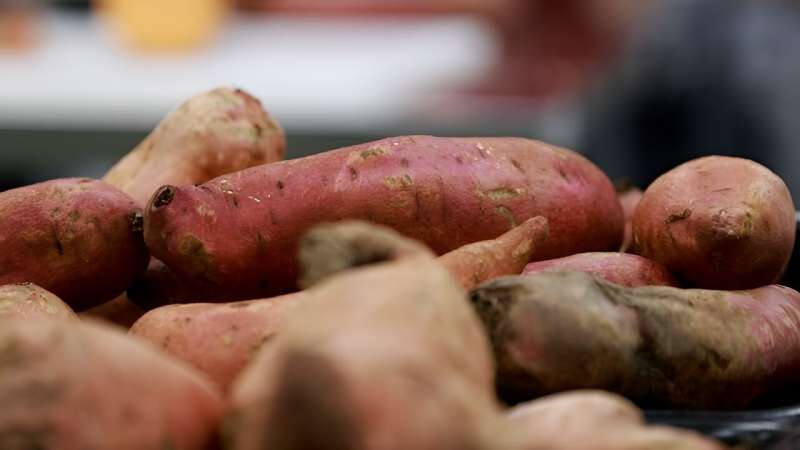This article has been reviewed according to Science X's editorial process and policies. Editors have highlighted the following attributes while ensuring the content's credibility:
fact-checked
peer-reviewed publication
trusted source
proofread
Moms and caregivers facing family food insecurity need help with more than just food, researchers say

People don't experience food insecurity the same way. Often, it's the mothers who first change their eating habits when food runs low to shield others, especially children, from its effects.
To find out what is needed to help everyone have enough to eat, Virginia Tech researchers conducted a study with low-income moms and caregivers.
"We wanted to see how moms' mental health was affected when food security levels varied within the household," said Sarah Misyak, assistant professor in the Department of Human Nutrition, Foods, and Exercise and the assistant director of the Family Nutrition Program.
"Mothers experience negative mental health impacts due to household food insecurity, especially if they are the ones going without food or using a sizable portion of it. This evidence shows that a mother's mental health suffers based on who in the household is affected by food insecurity."
The research team included Rachel Liebe Ph.D. '23, now in the Department of Nutritional Sciences at Oklahoma State University, and Chanit'a Holmes, assistant professor in the Department of Agricultural and Applied Economics.
The research was recently published in Nutrients.
Household food insecurity hits moms—and caregivers—hard, especially when adults are the ones going hungry.
"Moms in households with any food insecurity had worse mental health and had to use more strategies to cope with the food shortage compared to moms in food-secure households," Misyak said. "They also reported higher anxiety and depression levels than those in food-secure homes."
According to the researchers, this shows the need for strategies to help moms or caregivers manage their mental health when someone in the household is experiencing food insecurity. Besides nutrition education on managing food resources, additional support is needed to help mothers or caregivers with their mental health.
Food insecurity—or security—is not a constant state. According to the researchers, it's been shown to happen more during the holidays or during summer when school meals are not offered.
Future research should focus on creating screening tools that can pinpoint exactly which household members are experiencing food insecurity, Misyak said.
"This way, we can connect families with the resources they need to ensure everyone has enough to eat," she said.
More information: Rachel A. Liebe et al, Differing Within-Household Food Security Statuses Are Associated with Varied Maternal Mental Health Outcomes, Nutrients (2024). DOI: 10.3390/nu16101522




















